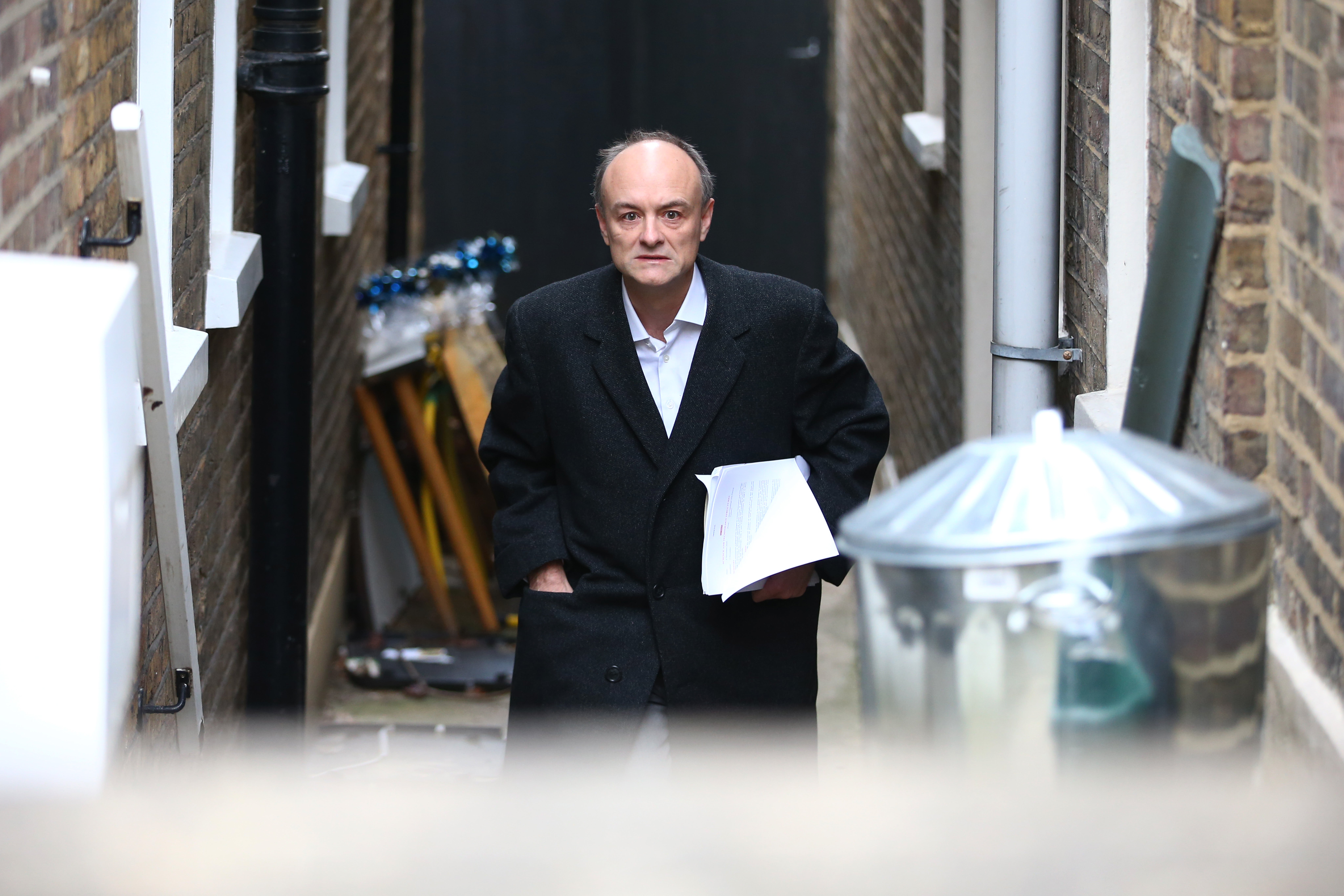What are we meant to think when ‘facts’ don’t really exist anymore?
At a time when we need expertise most, it has been deeply jarring to see trust in evidence so severely destabilised, writes Rufus Hound


It is 9.30am. I am not awake but my phone is – and thus the cracked Samsung takes the call from my agent. Would I like to write a column? There are legions of journalism students and English graduates who would kill for this opportunity, but as the UK’s most besmirched celebrity ex-ice dancer, inevitably this request has headed my way.
If I can just rustle together 1,000 words by mid-afternoon, I might almost be able to afford the Lego Grand Piano (with automated “real” piano sound) that a year’s unemployment has kept from me.
As my digital horcrux relays this opportunity, my internal scribe erupts, sweeps empty glass bottles from an imagined desk and shouts, “I just need two cups of strong tea and an idea. Leave it with me.” That plastic potential pianoforte is as good as mine.
I flip my laptop open, fingers splay and clench spasmodically. All I need is an idea. I’ve written a few newspaper columns in my life and the process of birthing them has remained unchanged. Drink tea. Have idea. Write. The past year has given me no shortage of time to think about things and almost zero opportunity to sound off about them to strangers. This will be easy, I think.
And then I think some more. And then a bit more. And then the awful, implosive realisation: I actually don’t know anything. Which would be terrible were it not for the fact that neither do you.
Michael Gove (ya know, if Geppetto had made Peperamis from tripe?) may not have been the inventor of this condition, but he will forever be its poster boy for his pre-Brexit utterance, “I think the people in this country have had enough of experts.”
The national rush to embrace this sentiment has been dizzying. The Brexit pitfalls that policy experts not only predicted but stood, flare in either hand, promising, were dismissed as part of Project Fear. And never shy of disregarding wisdom in favour of sensation, parts of the British press have run so far with this ball that, over the last demi-decade, most thinking people have been brought to a zen like state of knowledgelessness.
It isn’t simply that we don’t know things any more, it’s that we’re incapable of knowing things. Deep, intractable, basic things. Is the world round? Should we feed hungry children? What is fascism and is it actually all that wrong? Questions like these that would have been dismissed 20 years ago for the obviousness of their responses, now have airtime and column inches and Twitter accounts and video channels and all contribute to the endless howl and echoing screams that soundtrack modern life.
At a time when we most needed expertise, it has been deeply jarring to see this destabilising plurality of “fact”. It has most certainly contributed to our shameful national Covid death toll and that would be bad enough but, like the long-tail version of that thing we’ve all been hiding from, it’s the long term damage that will yet prove to be the worst.
Driving 30 miles to test one’s eyesight? Billions in taxpayer money handed, consequence free, to unqualified hucksters? Exemptions for those who want/can pay for them but pay cuts and no jabs for the frontline workers that are trying to save us? None of these things make any sense, but as nothing makes any sense anymore, what are we meant to do with these affronts to decency? Hold people to account? For what? Nothing happened. We can’t fact check it, because facts don’t really exist any more. And even if they did, it doesn’t matter. Nothing matters. There’s nothing to see here.
Instead, we just try and feel our way through it. So... How to feel about Luiz Inácio Lula da Silva’s corruption charges? Or language? Or how Tom Holland is the cutest and greatest human being to have ever walked the face of the earth and if my nine-year-old daughter doesn’t get to meet him she might, like, actually, like, really actually, like, die? Chances are you might not have very strong opinions about any of these things and who could blame you?
Well, most people, it turns out. These last 12 months have seen an enormous surge in the amount of time people spend online. While we’re all now somewhat familiar with “the dangers of social media”, a lack of in-person exposure to our friends and peers has seen most of us trying to pick our way through this pandemic and its ramifications via various social networks. Networks awash with scared, invested, similarly misinformed people, all ready to hold feet to the fire for any perceived wrongthink or bad tweet.
We are all now outrage addicts, trained like Pavlov’s dogs to press the screen and get our reward. That’s what this so-called culture war really is. The mainly old versus the mainly young getting their fix of righteous vitriol and screaming about change. In a world where we know we know nothing, all we have left is what we feel and saying that what you actually feel is lost, scared, adrift or confused is not okay.
“How can you not know?! There’s so much ‘out there’ about it! You must be wilfully NOT finding out about [subject]. Well, bully for you and your privilege! How wonderful it must be not to care about this thing that causes untold horror for so many! You utter, utter sh*t.”
And that’s just the other users. The algorithms that underpin these sites have written themselves and lead each of us down ever more extreme rabbit holes, keeping our eyeballs where they can be monetised. Algorithms that cannot perceive truth, let alone care about it or direct you to it. Algorithms designed to make you angrier and sadder and happier and madder, so long as THEY KEEP YOU.
We now live in a world where you are expected to both revile experts and be one. To know everything and be prepared to accept that everything you know is wrong. To trust no one but respect everyone, unless they don’t deserve it, which they don’t.
As such, I have no idea what I think or feel about anything or even whether the things I think about are real or true. There are endless studies that tell us that our sense of who we are, our own memories, cannot be trusted. Mathematical thought experiments tell us this is almost certainly a simulation anyway. All of which uncertainty makes for a terrible column.
Or does it? All I know is that I have a miniature piano coming. Why can’t I just be happy with that?
Join our commenting forum
Join thought-provoking conversations, follow other Independent readers and see their replies
Comments